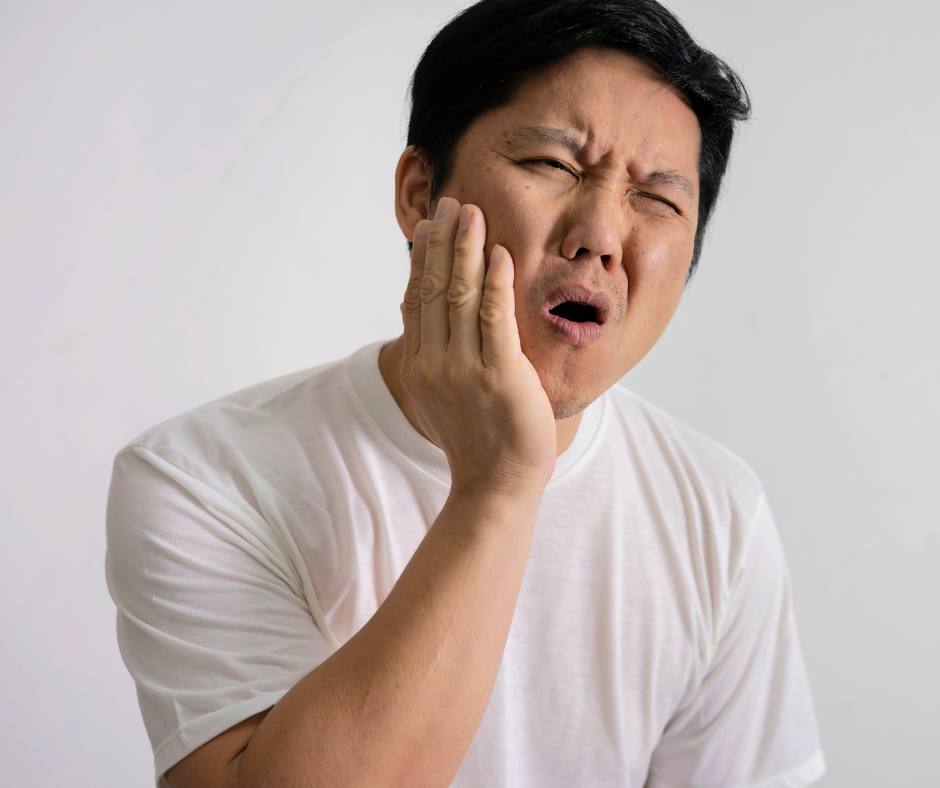24/7 online booking

Can Neck Pain Cause Tooth Pain? Understanding the Connection
Neck pain and tooth pain might seem like two unrelated issues at first glance, but they can, in fact, be connected. Many people are surprised to discover that discomfort in the neck can sometimes lead to pain in the teeth. In this blog, we’ll explore how neck pain can cause tooth pain, the underlying mechanisms involved, and what you can do to find relief.
The Link Between Neck Pain and Tooth Pain
The human body is a complex network of nerves, muscles, and joints, and issues in one area can sometimes affect another. When it comes to neck pain and tooth pain, the connection is often related to the nerves that serve both the neck and the face. The most common reasons for this link include:
1. Referred Pain
Referred pain occurs when pain in one part of the body is perceived in another. In the case of neck pain causing tooth pain, the discomfort in the neck may be due to issues with the cervical spine or surrounding muscles. The pain signals can be misinterpreted by the brain as originating in the teeth, particularly the lower jaw. This is because the nerves in the neck and jaw are closely related, sharing pathways that can lead to confusion in pain localisation.
2. Temporomandibular Joint (TMJ) Dysfunction
The temporomandibular joint connects the jaw to the skull and is located near the base of the neck. When the muscles around the TMJ are strained, often due to poor posture, stress, or teeth grinding (bruxism), it can lead to pain that radiates to the teeth. Neck pain can exacerbate TMJ issues, creating a cycle of discomfort that involves both the neck and the teeth.
3. Nerve Compression
Conditions such as a herniated disc or spinal stenosis in the cervical spine can compress nerves that travel through the neck to the face and jaw. This nerve compression can lead to radiating pain that is felt in the teeth, even though the primary issue resides in the neck.
Symptoms to Watch For
If you’re experiencing tooth pain that you suspect might be linked to neck pain, it’s important to be aware of the accompanying symptoms that could point to a deeper connection. These might include:
- Persistent neck pain: Stiffness or discomfort in the neck that coincides with tooth pain.
- Jaw pain or clicking: Discomfort or popping sounds when moving your jaw, which might suggest TMJ involvement.
- Headaches: Frequent headaches, particularly at the base of the skull, can be associated with both neck and tooth pain.
- Facial pain: Pain that extends beyond the teeth to the cheeks, ears, or temples.
Seeking Relief: What Can Be Done?
If you’re dealing with tooth pain that seems to stem from neck issues, there are several approaches to consider for relief:
1. Osteopathy
Osteopathy can be highly effective in treating the musculoskeletal causes of both neck and tooth pain. An osteopath will assess your posture, neck alignment, and TMJ function to determine the root cause of your discomfort. Through manual techniques such as gentle manipulation, soft tissue massage, and stretching, an osteopath can help relieve tension in the neck, improve joint mobility, and reduce nerve irritation, which may, in turn, alleviate tooth pain.
2. Dental Consultation
It’s important to rule out any dental issues that could be contributing to your tooth pain. A dentist can check for cavities, gum disease, or other oral health problems that might be causing or worsening your symptoms. If your dental health is in good condition, this further supports the likelihood that the pain is referred from the neck or TMJ.
3. Stress Management
Stress is a common factor that can exacerbate both neck and tooth pain, particularly through teeth grinding or clenching. Techniques such as deep breathing, meditation, and regular physical activity can help reduce stress and its impact on your body.
4. Ergonomic Adjustments
Improving your posture and ergonomics, especially if you spend a lot of time sitting at a desk, can significantly reduce neck strain. Ensure your workspace is set up to support good posture, with your computer screen at eye level and your chair adjusted to allow your feet to rest flat on the floor.
When to Seek Medical Advice
While neck-related tooth pain is often manageable with the approaches mentioned above, it’s important to consult a healthcare professional if:
- The pain is severe or worsening.
- You experience other symptoms such as numbness, tingling, or weakness in the face or arms.
- The pain does not improve with conservative treatment.
These could be signs of a more serious underlying condition that requires prompt attention.
Conclusion
Neck pain can indeed cause tooth pain, primarily through mechanisms such as referred pain, TMJ dysfunction, and nerve compression. Understanding this connection can help you identify the true source of your discomfort and seek the appropriate treatment. If you’re struggling with tooth pain that seems to be linked to neck issues, an osteopath can play a crucial role in diagnosing the problem and providing relief through tailored treatment.
If you would like to book and appointment with us, you can do so by clicking here.

Leave a comment